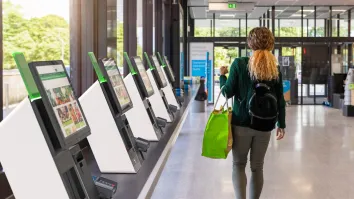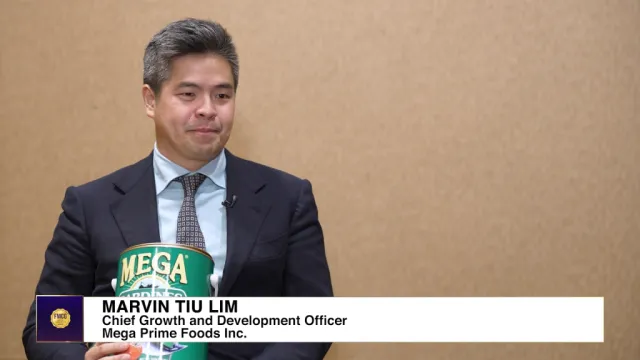
Developing the right talent to prepare for the digital economy
Two in five said that access to training and digital development will have the most impact on productivity.
Within the next 20 years, 59% of retail and wholesale jobs have a high chance of becoming automated, according to the report Future of Retail Work: A guide to transforming workforces in a digital age of disruption by business consultancy Deloitte. Muneerah Bee finds out what this means for retailers in Asia, especially in economies that are facing a persistent labour crunch.
A report showed that 40% of respondents said access to workforce training and development on mobile/digital will have the greatest impact on workforce productivity and performance.
Given the fast-paced nature of the retail sector, the industry is seeing more automation these days to make up for the lack of manpower, while employers are tackling the shortage of retail labour with technology and self-service concepts.

Shinsuke Kafuku, President and CEO, World Mode Holdings Group
Various functions such as operations, human resources (HR) and even online shopping are being done electronically with less human intervention. As retail technologies keep progressing towards a digital world, it is inevitable that some mundane tasks and traditional retail roles will be replaced. For example, as more retailers adopt the growing trend of unmanned stores, a store may do away with some cashiers as it brings in automatic checkout machines.
With these time-saving implementations, the existing staff can be reskilled and upskilled to do other more important tasks. Employees who understand digital technologies and who can translate data into actionable insights will be increasingly in demand within the sector as the industry evolves.
In fact, consulting agency Cognizant’s report on 21 Jobs of the Future — which highlights new jobs that will arise 10 years from now — suggests that new vacancies such as virtual store Sherpas and digital tailors will exist to deliver instant, virtual customer service and advice and elevate the retail experience, especially on digital mediums.
“Retailers and retail professionals must be prepared to embrace change. The objective for brands is to hire and retain the right talent, as well as keep their skills relevant to the retail industry,” says Shinsuke Kafuku, president and CEO of World Mode Holdings Group, of which iDA Singapore is a subsidiary. Launched in Singapore in September this year, Japanese fashion retail consultancy iDA Singapore aims to build a community of 600 qualified retail professionals in the republic by end-2019.
Riding the online wave

Allie Teh, Senior Consultant – Sales & Marketing, Luxury, Retail & Technology, Robert Walters Singapore
Kafuku points out three important industry trends that are having an impact on retail labour in Asia — accelerating globalisation, fast-advancing technology evolution especially in Singapore, and an overflow of information.
With these trends, high customer service standards are becoming more important for bricks-and-mortar stores as customers expect good quality service that cannot be easily attained through online shopping. This means that customer service training for retail professionals is becoming increasingly important, he reiterates.
Similarly, Allie Teh, senior consultant — Sales & Marketing, Luxury, Retail & Technology at recruitment consultancy Robert Walters Singapore, shares that within the luxury retail sector, top-notch service and the consumers’ physical in-store experience are still an imperative part of the consumers’ purchase journey. “Consumers of this nature expect a personal and customised touch when they visit the luxury retail stores; hence, boutique managers and other front-line retail positions within the luxury sector will still be in demand in the long run,” she maintains.
With digitalisation and stiff competition in the market, retailers are also distinguishing themselves by exploring innovative ideas to optimise the shopping experience for consumers. “For instance, instead of traditional fitting rooms, we see companies coming up with smart mirrors that offer virtual trials to customers.
“Retailers should also offer training to their employees to help them adapt to these changes, and to use the information and feedback they have collected from their employees to improve,” Teh says.
Ensuring that employees are constantly up-to-date with the latest products and features is extremely crucial, according to Rupam Biswas, founder and CEO, Sendjobs — an app where hirers can find and connect with relevant candidates instantly — and this can be done by providing constant training. “Staff should also be able to work across various functions if necessary,” he declares.
Lifting retail professionals
Retailers who want to empower employees with digital technologies and tools, and provide training to reskill and upskill should first foster and build closer relations with their retail associates, in order to create a good working environment and culture that will lead to staff retention. Coaching and training of retail management are equally important.
Kafuku says: “We believe that retail management team needs continuity of training and personal development as much as retail associates. The management staff needs to be trained on communications skills, brand culture, brand value, and most importantly, establish stronger relationships with their staff.”

Retail workers are also more likely to feel empowered in their job roles when they are equipped with easy-to-use technology and tools to improve work efficiency.”— Xiaofeng Wang, Senior Analyst, Forrester
He adds that the retail sector in Singapore is overlooked by many jobseekers due to the perception that retail jobs are undesirable, and as such many do not view a job in the retail sector as a long-term career option.
However, retail professionals are not only in stores to sell products, but they are also here to offer a unique and memorable service experience to customers — and retailers can better manage their workforce by valuing their employees and investing in them through training and development, which will lead to long-term benefits for their business, he suggests.
“In Japan, together with CEOs of our retail clients in the luxury market and department stores, we founded the Japan Sales Professionals Association with the mission to raise the social status of retail professionals in Japan. We hope to make a similar impact in Singapore,” Kafuku reveals.
When it comes to recruitment, retail employers should look beyond experience and be open to considering potential candidates with positive attitudes and an interest to upskill. “Personally, I have met and spoken to many candidates in the market who are willing to explore and take on new challenges, but are not given the opportunity to do so,” says Teh, adding that “employers should also constantly innovate to keep abreast of emerging technologies.”
Xiaofeng Wang, senior analyst at market research company Forrester, highlights that maintaining talents is more important than employing, and motivating and training them are more important than managing. On top of that, the employee experience is even more important than customer experience, she adds.
Overcoming hiring woes
Biswas of Sendjobs observes that one of the common mistakes retailers make is implementing a centralised entity hiring based on credentials instead of practical experience, and ignoring soft skills when hiring, which often results in a poor fit and high employee turnover. While retail operations today are facing many obstacles, such as budget and technology evolution, it is still important to maintain staff engagement. In this regard, iDA Singapore’s Kafuku believes that retailers should avoid three important factors:
1. Merely fulfilling headcount
2. Reducing training quality and time
3. Lack of communication within the staff in the store
“In their pursuit of footfall in stores, some retailers may have overlooked the importance of valuing their employees and investing in their career development. This will in turn lead to many retail staff treating their work as a job and not as a career, which will impact their service performance.
“Retailers have a big part to play in raising the social status of retail professionals, through a proper career development plan for all staff. If their staff are able to raise service standards and bringing in business as a result, they should then be rewarded accordingly,” he maintains.

Rupam Biswas, Founder and CEO, Sendjobs
Employee engagement can include empowering staff by allowing them to lead and drive projects, Robert Walters Singapore’s Teh says. This, in return, will engender the employees with a sense of ownership and responsibility.
Retail workers are also more likely to feel empowered in their job roles when they are equipped with easy-to-use technology and tools to improve work efficiency, adds Forrester’s Wang.
This is in line with findings from a report titled The changing role of the store: Is your workforce ready? by research and advisory firm EKN Research and management consulting company Avanade, where 40% of respondents said access to workforce training and development on mobile/digital will have the greatest impact on workforce productivity and performance.
Sendjobs’ Biswas also suggests constant communication and regular feedback to headquarters, by decentralising the decision-making process in relation to day-to-day operations and providing employees with the ability to choose their shifts and working hours.
As retailers make business decisions to invest in technology, it is vital to transform the workforce and invest in their employees if they want to succeed in the digital era.
Connecting the right match

Sendjobs believes it has the ability to remove frictional vacancies and unemployment in the retail sector.
OFFERING holistic workforce management solutions that are grounded in innovation and simplicity, Sendjobs’ artificial intelligence (AI) algorithm matches job posts instantly to candidates’ skills and experience.
“With Sendjobs, staff can be hired within just minutes of posting a job,” claims Rupam Biswas, founder and CEO of Sendjobs. The company also offers a full suite of human resources (HR) management products, such as integrated HR management system (HRMS) to manage employee records, sign contracts, track leave and attendance, approvals, performance management, automatically scheduling shifts and so on. Through the Sendjobs platform, Biswas says, employers are able to “save countless hours” by automating the entire hiring process.
“Retailers, who are looking to manage their growth and boost the success of their company within the fastpaced retail industry, can rely on digital integrated staff management systems to increase process automation and improve forecasting, which frees them up from administrative processes and gives them more time to focus on enhancing their level of customer service.
“Efficient retail workforce management improves product knowledge, customer service, cross-selling, and impacts loyalty and rewards schemes — which positively influence customer experiences. The use of technology helps drive customer engagement after sales as well,” Biswas explains.
Sendjobs believes it has the ability to remove frictional vacancies and unemployment in the retail sector. “Traditional sourcing methods are often time-consuming and cumbersome, and roles may not get filled as a result. Sendjobs can help with reducing the hiring cycle time by 70% at one-tenth of the cost of currently available options,” Biswas says.
Sendjobs also works as a social hiring platform that allows employers to build a presence and engage with communities of prospective candidates. Employers can post jobs, connect with candidates and hire as many times as they wish all for free.



















 Advertise
Advertise








